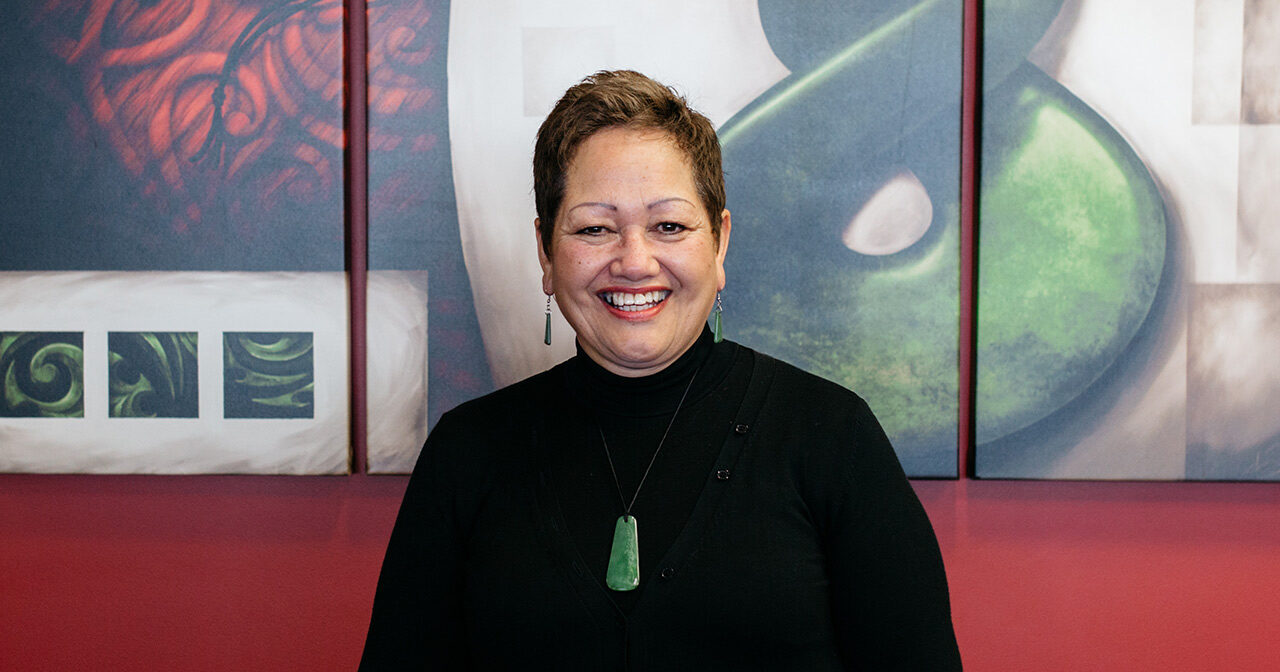Māori and Indigenous Theology
The Bible tells of a God who delights in diversity-in-unity– one who creates cultures within a world, ecosystems within a globe, and languages within humanity. The Scriptures paint an evocative picture of the end of all things – with all people groups and all tongues singing songs of praise to the God who created them all.
At Laidlaw, we recognise that our diverse cultures offer unique perspectives on knowing God and understanding what it means to faithfully follow Jesus. Exploring theology from a Maoritanga posture provides a deeper understanding of life and faith, while also growing the vitality of Māori and indigenous theology.
We remember that Jesus was part of a people tracing their ancestry back thousands of years, with a rich connection to land and traditions that shaped their everyday life. We understand that Jesus’ indigenous identity shaped his life – and how God’s people have often had to learn to live as a people living under a dominant culture that is not their own.
Explore how the concept of whakapapa provides a framework for ethics and interaction with the narrative of Scripture. Discover how reading Scripture through the eyes of the indigenous sheds new light on belief and fulfilment – and how reading culture through the eyes of Scripture highlights God’s presence in homes, cultures and practices around the world.
And learn how the diverse threads of different perspectives can be woven together – to create a deeper, more beautiful understanding of following Jesus.
Māori and indigenous theology courses can be taken for interest only, or under a Certificate in Proficiency, Graduate Certificate in Theology, Graduate Diploma in Theology, or Bachelor of Theology. Level 5 courses include:
907.515 BICULTURAL RELATIONSHIPS: TIKANGA KAWENATA
Be introduced to Tikanga Māori on the basis of understanding people in their contexts. It combines theological, theoretical, and historical reflection with the development of practices drawn from an integration of these. You will also be provided with an overview of tikanga Māori and theological views of kawenata (covenant) and justice and their application within community leadership in Aotearoa. There will be regular oral activities aimed at developing fluency in the use of te reo and tikanga in a range of settings. The culmination of this oral learning is participation in the Noho Marae, where an overnight stay on a marae provides an integrated opportunity to engage with Māori culture beyond the classroom. This is a compulsory course in the Diploma of Christian Studies (Theological Studies) and Bachelor of Theology programmes.
312.515 NGĀ HUNGA HOHOURONGO (THE GOSPEL PEACEMAKERS)
Explore an aspect of Māori responses to the introduction of Te Rongopai—the Gospel—to Māori society. The message of the Gospel contends with utu, war, and the law/lore of tapu. This course provides an overview of peace-orientated Christianity and its impact on Māori society through the reception of the Bible as a book of peace.
312.515 A HISTORY OF PACIFIC CHRISTIANITY
Explore the spread of Christianity in the Pacific. You will look at the critical role that Western and Pasifika missionaries played in the process of evangelisation and the historical development of Pacific churches. You will also look at the growth and influence of diaspora Pacific churches and communities in Aotearoa New Zealand and Australia. This course also reflects on the development of Pacific Christianity and its relevance for Christian life, mission, and ministry today.
579.515 NGĀ HUNGA MĀIA (FAITH-LED MĀORI LEADERSHIP)
Examine the impact of the Bible and the gospel message on both traditional and contemporary Māori leadership. You will explore the influence of early Māori Christian evangelists in changing traditional leadership roles and the continuation of Māori faith-led leadership in contemporary iwi, hāpori and hāhi transformation.
407.515 DISCIPLING PASIFIKA COMMUNITIES
Explore the expertise and skills for discipleship in the local church, local community, and/or global missions. You will develop an understanding of the practical dimensions of Christian ministry by collaborating with Pasifika role models in church environments and professional vocations. This course will prepare you to minister effectively in Christian missions and inter-cultural communities.
649.515 WHAKAPAPA O TE ATUATANGA (GENEALOGY AND GOD)
Have an overview of the relevance of genealogy within both Māori society and the biblical scriptures. Explore how both whakapapa Māori and biblical genealogy is key to connecting to Atua (God), tangata (people), and whenua (land), and look at this concept in the context of identity, adoption, and redemption. Identity, adoption, and redemption are central features of biblical genealogy and speak directly to a Christian whakapapa.
217.515 PASIFIKA THEOLOGY
Explore how theology is done contextually in the Pacific region through the examination of Pacific concepts, stories, and socio-politico-economic structures of life. The understanding developed provides a foundation for shaping Pacific ministries based on biblical interpretation, theological reflection, and religious practice.
Other Māori and indigenous theology courses that can be taken as part of the GradCertTh, GradDipTh, and BTh include:
- Māori Christianity
- Māori Christianity II
- Wairuatanga
- Māori Church/Community Leadership
- Māori Perspectives on Galatians
- Tikanga-a-Tangata
- Tikanga Rangahau
- Cultural Anthropology
- Māori and Pasifika Education
